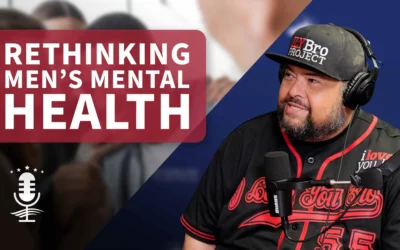Written by
Originally published in Utah Policy.
Monday’s redistricting ruling by a Utah district court judge rests on an undemocratic assumption of power that, however positive in motivation, undermines the core constitutional principle of separation of powers. The Utah Supreme Court is the source of that error and should take the opportunity presented by an appeal in this case to correct it.
The ruling this week came in a lawsuit challenging the repeal and replacement of Proposition 4, which was a ballot initiative that created a new method for drawing district maps for candidates running for office. Something far more important is at stake, though. The district court ruling, and the Utah Supreme Court ruling it is based on, change the very nature of our state constitution by amending it via judicial decree.
The district court decision applied a new legal standard, created by a 2024 Utah Supreme Court ruling, for determining the meaning of constitutional language. In that opinion, the justices chose to set aside the previous legal standard of relying on the plain and undisputed meaning of constitutional language in favor of analyzing historical anecdotes that suggest possible voter intent to determine the constitution’s meaning. The idea that judges can rely on intent unrecorded in the Constitution to get around the plain meaning of constitutional language was adopted in subsequent cases, such as the recent district court ruling.
This is a problem. In our system, the Constitution is the supreme manifestation of the will of the people, which binds the government and citizens alike. Citizens control the government by following the procedures and limitations established in the state constitution. A proposed law, even popular laws enacted by voters, cannot amend the Constitution or take away the rights that the Constitution guarantees. Only an amendment to the Constitution can do that.
By contrast, the recent court decisions use what judges decide is the real intent of voters (unwritten in the Constitution) to set aside or modify (i.e., amend) how constitutional provisions apply. In practice, these rulings claim for judges the power to change constitutional provisions through creative historical interpretations produced by judges.
For instance, the Utah Constitution gives the Utah Legislature the “legislative power,” which is the power to propose, enact, amend, and repeal laws. The same constitutional provision gives the people of the state a similar power, specifying that they exercise it by proposing laws by ballot initiative or rejecting legislatively enacted laws via referendum.
On the other hand, the Utah court’s redistricting opinions say that some elements of the “legislative power” – like the ability to amend or repeal laws – can be denied to the Utah Legislature if judges’ preferred historical interpretation of initiative supporters’ intent conflicts with legislative action. This redefines voter initiatives as potential constitutional amendments, if judges apply them that way.
This is a dramatic change to our constitutional system of separation of powers, which envisions changes to the three branches of government through democratic processes – voting and elections – not by court order.
Under the constitution, voters have multiple routes to correct legislative acts they disagree with. They can amend the constitution through their elected representatives and a vote of the people, they can propose a ballot initiative or referendum, and (most fundamentally) they can organize and elect legislators who agree with their view of what the law should be. The constitution does not give the courts control over the legislative power, or the role of legislative supervisor on behalf of litigants who dislike what the representative branch has done.
The Utah Supreme Court should correct its mistake from last year and allow the political interplay and democratic back-and-forth between ballot initiative, referendum, and legislative action to decide what the law will be.
More Insights
Read More
Does open enrollment work well in Utah? Parents share their stories
Parents in Utah report mixed experiences with public school open enrollment. See where improvements are needed to better serve families.
I Love You, Bro: Combating male suicide | Joe Tuia’ana
Men make up nearly 80% of suicide deaths, yet too often their struggles go unseen. We explore how to address the situation.
Judges should not amend the Constitution, even for a good reason
A recent Utah district court redistricting ruling, based on a flawed Utah Supreme Court precedent, undermines separation of powers by allowing judges to reinterpret constitutional meaning instead of preserving its plain text.
Connect with Sutherland Institute
Join Our Donor Network
Follow Us
The post Judges should not amend the Constitution, even for a good reason appeared first on Sutherland Institute.












